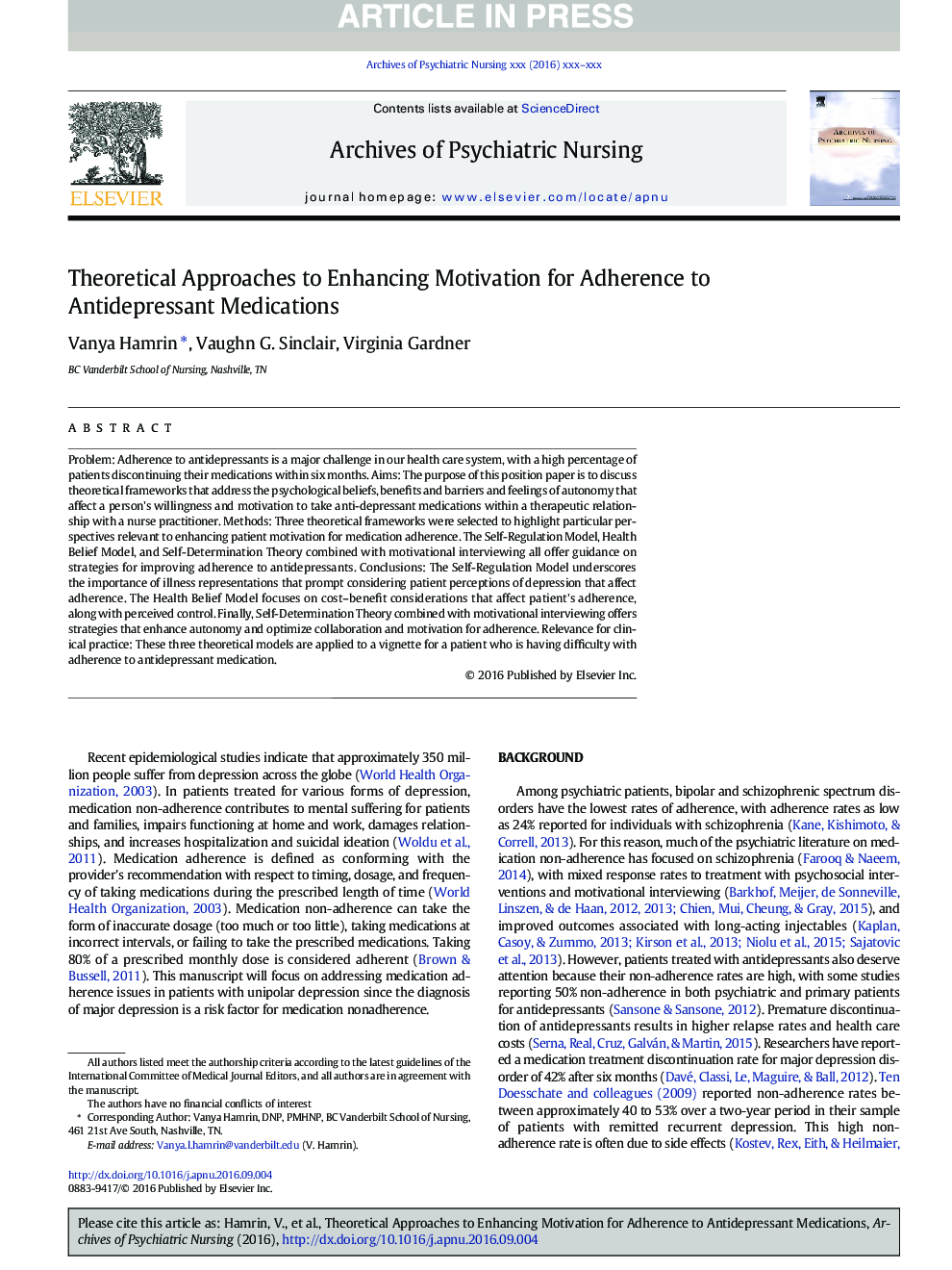| Article ID | Journal | Published Year | Pages | File Type |
|---|---|---|---|---|
| 4929587 | Archives of Psychiatric Nursing | 2017 | 8 Pages |
Abstract
Problem: Adherence to antidepressants is a major challenge in our health care system, with a high percentage of patients discontinuing their medications within six months. Aims: The purpose of this position paper is to discuss theoretical frameworks that address the psychological beliefs, benefits and barriers and feelings of autonomy that affect a person's willingness and motivation to take anti-depressant medications within a therapeutic relationship with a nurse practitioner. Methods: Three theoretical frameworks were selected to highlight particular perspectives relevant to enhancing patient motivation for medication adherence. The Self-Regulation Model, Health Belief Model, and Self-Determination Theory combined with motivational interviewing all offer guidance on strategies for improving adherence to antidepressants. Conclusions: The Self-Regulation Model underscores the importance of illness representations that prompt considering patient perceptions of depression that affect adherence. The Health Belief Model focuses on cost-benefit considerations that affect patient's adherence, along with perceived control. Finally, Self-Determination Theory combined with motivational interviewing offers strategies that enhance autonomy and optimize collaboration and motivation for adherence. Relevance for clinical practice: These three theoretical models are applied to a vignette for a patient who is having difficulty with adherence to antidepressant medication.
Related Topics
Health Sciences
Medicine and Dentistry
Psychiatry and Mental Health
Authors
Vanya Hamrin, Vaughn G. Sinclair, Virginia Gardner,
